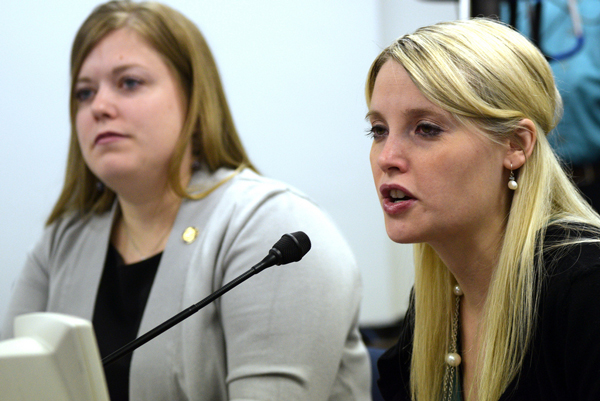
A bill requiring school districts to implement sexual abuse education seemed poised to become law during the recent Alaska Legislature. Gov. Sean Parnell supported Erin’s Law, the Senate passed it, and the House version had 21 co-sponsors.
But House Bill 233 got stuck in committee.
House Finance Committee co-chair Bill Stoltze says he’s not sure why Erin’s Law didn’t get heard in his committee. He calls it “a casualty of a hectic session.”
“I guess I’ll call it falling through the cracks because it wasn’t one that I had any animus toward or any interest– I was dealing with so many crime bills and I don’t know how that one slipped through. I can’t even tell you much of the content of it because I didn’t really look at it,” Stoltze says.
HB 233 unanimously passed the House Education committee at the end of March and went on to House Finance. House Speaker Mike Chenault says he doesn’t recall why he referred it there since the bill had no fiscal note.
Chenault was the last of 21 representatives to sign on to co-sponsor the bill. He doesn’t know why it was held up.
“Sometimes it’s inner turmoil. Sometimes it’s just not the right time. Sometimes it’s somebody doesn’t like it. If it ever got to the floor, it probably would’ve passed,” Chenault says.
Of the roughly 380 bills introduced on the House side, Chenault says only 68 House Bills passed this year.
“People were concentrating on the big issues that affected the state versus other issues that didn’t quite get to the top of the pot,” he says.
Democratic Rep. Geran Tarr, who introduced Erin’s Law, says teaching kids to speak up when someone touches them inappropriately is a big issue for the state.
“This is a transformational legacy type of legislation where 10, 20 years down the line you’ve made a difference in the lives of thousands of Alaskans and we should’ve done it this year,” Tarr says.
She says she was shocked and embarrassed the bill died.
“We could’ve done the right thing and given kids a voice on a very important issue. That effort will be delayed by at least a year now. We’ll come back and we’ll be ready to work on it again next year. The sad news is there are kids that need the information now,” Tarr says.
Erin’s Law is named after 29-year-old Erin Merryn from Illinois, who was sexually abused as a child. Merryn travels around the country advocating for sexual abuse education in schools.
She spent a week in Alaska in March. She talked to lawmakers, testified on the bill, and participated in the governor’s annual Choose Respect rally.
Merryn wonders why the bill died, especially since it had support from both sides of the aisle. While the House version of the bill was sponsored by a Democrat, the Senate’s version was carried by Republican Senator Lesil McGuire.
“It’s a bipartisan issue. I’m not sitting here arguing abortion or death penalty. I’m arguing protecting kids. And the only ones who should be against this bill are the ones that have something to hide, the perpetrators themselves,” Merryn says.
Erin’s Law has passed in 12 states. Most recently, Merryn testified in Rhode Island, and will soon take her campaign to Canada, then to Australia.
But she says she’s not done in Alaska.
“I’m not going away. You can vote this down all you want. I’m going to continue to come back and pound on your doors and get others to support this bill until you pass it,” Merryn says.
The Alaska Legislature declared April Sexual Assault Awareness Month. According to the resolution, one in four girls and one in six boys will report being victims of sexual assault. Speaking out against sexual assault is an important first step toward eliminating the crime.
Lisa Phu is a reporter at KTOO in Juneau.




